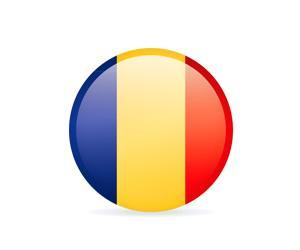Romania has been a gambling-friendly nation since freeing itself of communist rule in 1989. Both land-based and online gambling are legal in the country although questions remain regarding the licensing of internet casinos. There may be restrictions against playing at offline providers but to date, those restrictions have not been enforced.
- Romania National Gambling Officers
- Romania National Gambling Officer
- Romania National Gambling Office Locations
- Romania National Gambling Offices
- According to the Office of Personnel Management (OPM), around 2.1 million civilian workers are employed by the federal government. This number excludes workers from agencies such as the U.S.
- BUCHAREST (Romania), December 11 (SeeNews) - Romania's consumer prices rose by 2.14% year-on-year in November, compared to 2.24% in October, the national statistical office, INS, said on Friday. Food prices rose 3.81% year-on-year in November, while non-food prices added 0.78%, INS said in a statement. Prices of services grew by 2.77%.

Best Romanian Betting Sites

Latest annual data from the National Gambling Office of Romania. The data released for the country contains the following information: Number of licensed operators & tax receipts by gambling sector, estimated GGR from online gambling & land-based betting and number of slot machines. There are approximately 260 data points in this document. The Romanian National Gambling Office is a government-approved regulatory authority established to regulate online gambling in the country and supply casino operators with licences.
Romania National Gambling Officers
I recommend these betting websites because they hold active Romanian gambling licenses. You can see proof of this by visiting the official list of approved sites in Romania here. Licensed operators have been cleared by gaming authorities and can be considered completely safe.

Romania National Gambling Officer
Depositing in Romanian Lei
Legal Romanian betting sites accept lei deposits and withdrawals. If you log in to your online gaming account and visit the cashier, you will find a variety of methods that can be used to fund your account. Many of the methods (such as credit cards) will be familiar to anyone who has purchased something online.
You will also be able to place sports bets and play casino games in the leu format. If you play online poker, your money will be converted to either USD, EUR or GBP for as long as you play. This is done simply to allow you to play with the same currency as players from all other parts of the world.
Is it Legal to Bet Online in Romania?
Yes. It is legal to bet online in Romania at officially licensed gambling sites. Now that we have the new law in place, there are a number of safe betting sites to chose from. It took a long time for lawmakers to work through the process, but today we have a regulatory system under which online gambling is legal.
However, many players still continue to do business with unlicensed offshore betting sites. Their reasons for doing so vary, but not all players are happy with the limited number of licensed gambling sites. The Romanian gambling authority warned players in 2015 that they face fines of 5k to 10k lei ($1,300 to $2,600) if they continue to play at unlicensed sites.
Gambling Laws in Romania
Romania National Gambling Office Locations
Romania has a long history of gambling and lottery-style games, but that all came to an end under four decades of communist rule. The 1989 Romanian revolution finally brought communism to an end and in 1992, a new constitution paved the way for greater freedom of all industries in Romania. Gambling was finally legal once again.
Internet gambling wasn’t addressed by Romanian law until 2009. That year, the government published Emergency Ordinance No. 77/2009. The law included language that made it a criminal offense to organize online gambling for any purpose. This law was never enforced and only remained in effect for a year.
Legislation enacted in 2010 created a framework for licensing online casinos within the country. However, there were two problems with this legislation. First, the country had no licensing authority in place to issue licenses until recently. Second, the licensing conditions require any potential Romanian betting sites to hold an offline gambling license inside the country.
The EU and foreign operators have criticized the offline license requirement as it clearly favors existing operators within the country. As a member of the European Union, Romania is required to provide an equal playing field for its domestic companies and companies based out of other EU member states. In the meantime, foreign operators from other EU nations offer their services to Romanians but do not hold official licenses to do so.
Law No. 246/2010 was passed the next year and it specifically addressed the licensing of online casinos. the law laid out the process by which online gambling sites could be licensed. Two major problems plagued the legislation from the beginning. No regulatory body was established to even issue licenses and the conditions of getting a license ran afoul of EU free trade treaties.
The 2010 law made it a criminal offense to play at unlicensed gambling sites with maximum sentences of two years in prison. This was one of the harshest laws applied to players in the world, but it was never successfully enforced – mostly due to the lack of a regulatory body.
Romania National Gambling Offices
The regulatory body was finally established in 2013 as the National Gambling Office. Romania still hasn’t addressed the EU’s concerns but it has made small changes to its laws in an attempt to appease the European Commission. The biggest issue here was that an online license required a physical offline gambling presence or partnership with a casino in Romania.
The EU viewed this as an obviously protectionist measure aimed at giving existing Romanian companies the advantage. The biggest concern for players was that the formation of the NGO would make it possible for Romania to enforce its harsh laws against playing at offshore betting sites. These threats never materialized thanks to a later update to the law in 2015.

Up until 2015, Romania and the EU seemed to be at a stalemate. Romanian lawmakers were unwilling to relax their licensing requirements while the European Commission insisted that was exactly what needed to happen. Finally, Romanian lawmakers submitted a proposal to update the country’s gaming laws in late 2014. These laws were signed into effect in 2015 and instantly made Romania a much better place for both players and operators.
Government Emergency Ordinance 92/2014 (GEO 92/2014) changed the licensing requirements and made it much more feasible for international betting sites to apply for Romanian licenses. Now, it is no longer necessary that operators maintain a physical presence in the country and own an offline gambling permit. As long as licensees hold a bank account in the EU, EEA or Swiss Confederation and maintain a mirror of their servers in Romania, they may apply for licenses.